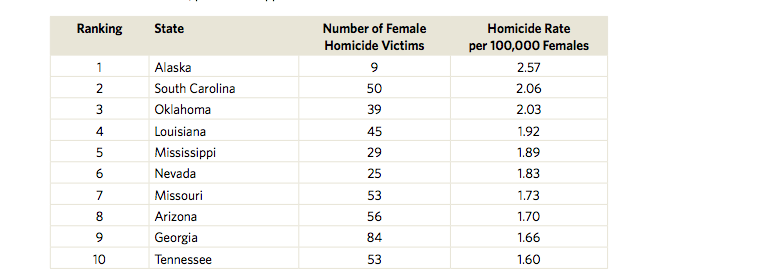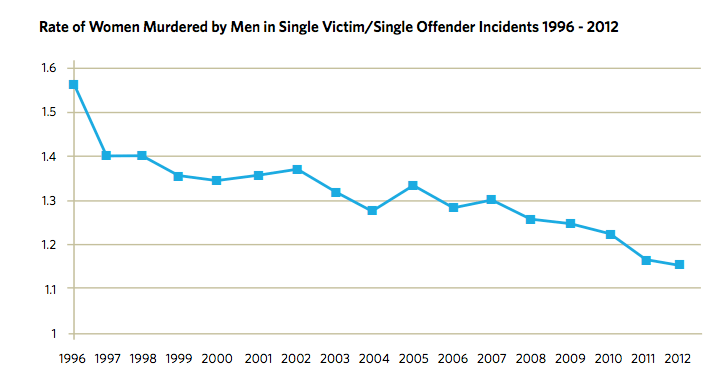Alaska, South Carolina and Oklahoma were the states where a woman was most likely to be killed by a man in 2012, according to a new report from the Violence Policy Center.
The center’s study looks at the most recent available data from the FBI on instances nationwide in which one woman is killed by one man. Due to substantive policy changes, the number of such attacks have declined in the last 20 years, the report says. Nonetheless, the threat of violence against women remains remarkably high.
“Women are far more likely to be the victims of violent crimes committed by intimate partners than men, especially when a weapon is involved,” the report says. “Moreover, women are much more likely to be victimized at home than in any other place.”
The report notes that the prevalence of deadly violence against black females was particularly high — in 2012, black women were “murdered at a rate nearly two and a half times higher than white females.” Women are more likely to be murdered by someone they know intimately than someone they don’t, according to the study.
The top ten states where, per capita, women were most often killed by men are listed below.

The report notes that incidents in which women are killed by men have declined sharply since 1996 and credits government policy for spurring on that change. In particular, the report cites Sen. Paul Wellstone’s (D—MN) 1993 amendment to the Violence Crime Control and Law Enforcement Act that prohibits people subject to a protective order related to domestic violence from buying a gun. The report also credits Sen. Frank Lautenberg’s (D—NJ) provision that bans people who have misdemeanor domestic violence convictions from buying guns (felons are already banned).

More Must-Reads from TIME
- How the Electoral College Actually Works
- Your Vote Is Safe
- Mel Robbins Will Make You Do It
- Why Vinegar Is So Good for You
- The Surprising Health Benefits of Pain
- You Don’t Have to Dread the End of Daylight Saving
- The 20 Best Halloween TV Episodes of All Time
- Meet TIME's Newest Class of Next Generation Leaders
Contact us at letters@time.com